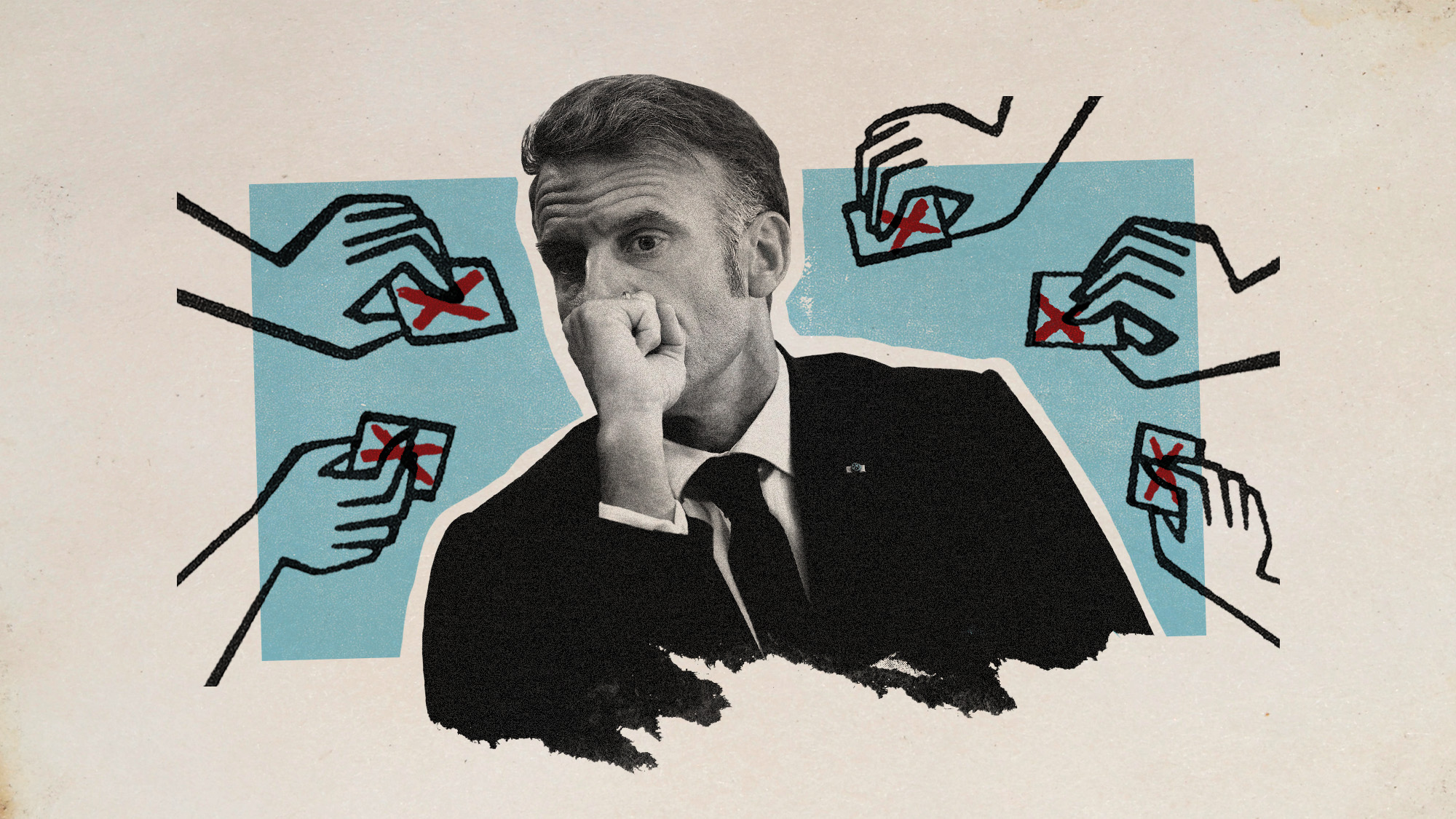France political crisis: what does Bayrou's gamble mean for Macron?
The French president could see his authority damaged beyond repair should another of his governments fail

A free daily email with the biggest news stories of the day – and the best features from TheWeek.com
You are now subscribed
Your newsletter sign-up was successful
Emmanuel Macron faces another crisis as French president after his Prime Minister François Bayrou called a vote of confidence in his government, which he is almost certain to lose.
Bayrou, who runs a centrist minority government and is a longtime ally of Macron, made the risky choice of having the vote amid his deeply unpopular economic decisions, including budget cuts and debt control measures.
Given that both the right and left-wing blocs of parliament are keen to see the removal of Bayrou, it spells another political headache for Macron. If a second of his governments falls in less than a year, it will leave the French president with few "unenviable choices" and another "political crisis" on his hands, said Laurent Geslin on Euractiv.
The Week
Escape your echo chamber. Get the facts behind the news, plus analysis from multiple perspectives.

Sign up for The Week's Free Newsletters
From our morning news briefing to a weekly Good News Newsletter, get the best of The Week delivered directly to your inbox.
From our morning news briefing to a weekly Good News Newsletter, get the best of The Week delivered directly to your inbox.
What did the commentators say?
If Bayrou's bet doesn't pay off, the "consequences are stark" for Macron. Having "gambled once on dissolving parliament in June 2024", which ultimately "deepened divisions", he may find himself with "little choice but to roll the dice again". The president's avenues in the event of a loss are clear: "appoint another prime minister and gamble on securing a fragile majority, call yet another snap election or resign".
Some of Macron's opponents might eye "long-shot" attempts to remove him or force him to resign, but the president has "categorically denied he would ever consider an early exit", said Clea Caulcutt and Victor Goury-Laffont on Politico. Given that he is constitutionally unable to run again in 2027, Macron is more interested in trying to "protect his legacy" before the next election, and to do that may leave him with "no choice" but to appoint a "third centrist or centre-leaning prime minister".
The right and left blocs, including Marine Le Pen's hard-right National Rally party, will want Macron "to dissolve parliament, and hold fresh elections", but that is also something Macron has been keen to "rule out" and he will likely take the opportunity to "appoint yet another" government "without returning to the ballot box", said The Economist.
The issue is "no one credible will want the job" of prime minister, said James Tidmarsh in The Spectator. That person would be "sacrificial" and would "preside over austerity and strikes", allowing Macron to "limp on in the Élysée" until his term ends.
A free daily email with the biggest news stories of the day – and the best features from TheWeek.com
The untimely confidence vote has also "dragged" Macron "into domestic upheaval at a significant international moment for him, in which he has positioned himself "to play a role on Ukraine and the recognition of a Palestinian state", said Angelique Chrisafis in The Guardian.
What next?
As well as the personal implications for Macron's political legacy, the French "fiscal credibility hangs by a thread", said The Spectator's Tidmarsh. It might have always been assumed that Europe's second biggest economy was "too big to fail", but on top of France's increasing debt and continued spending, the political turmoil only means a "downgrade from the rating agencies seems inevitable", which could "spike borrowing costs" as well as "potentially triggering a broader sell-off in European markets".
There seems little doubt Macron will "cling on" to the presidency should the government lose this vote, but his authority will be "weakened beyond repair". France, meanwhile, "risks months of paralysis, street unrest and financial turmoil".
Richard Windsor is a freelance writer for The Week Digital. He began his journalism career writing about politics and sport while studying at the University of Southampton. He then worked across various football publications before specialising in cycling for almost nine years, covering major races including the Tour de France and interviewing some of the sport’s top riders. He led Cycling Weekly’s digital platforms as editor for seven of those years, helping to transform the publication into the UK’s largest cycling website. He now works as a freelance writer, editor and consultant.